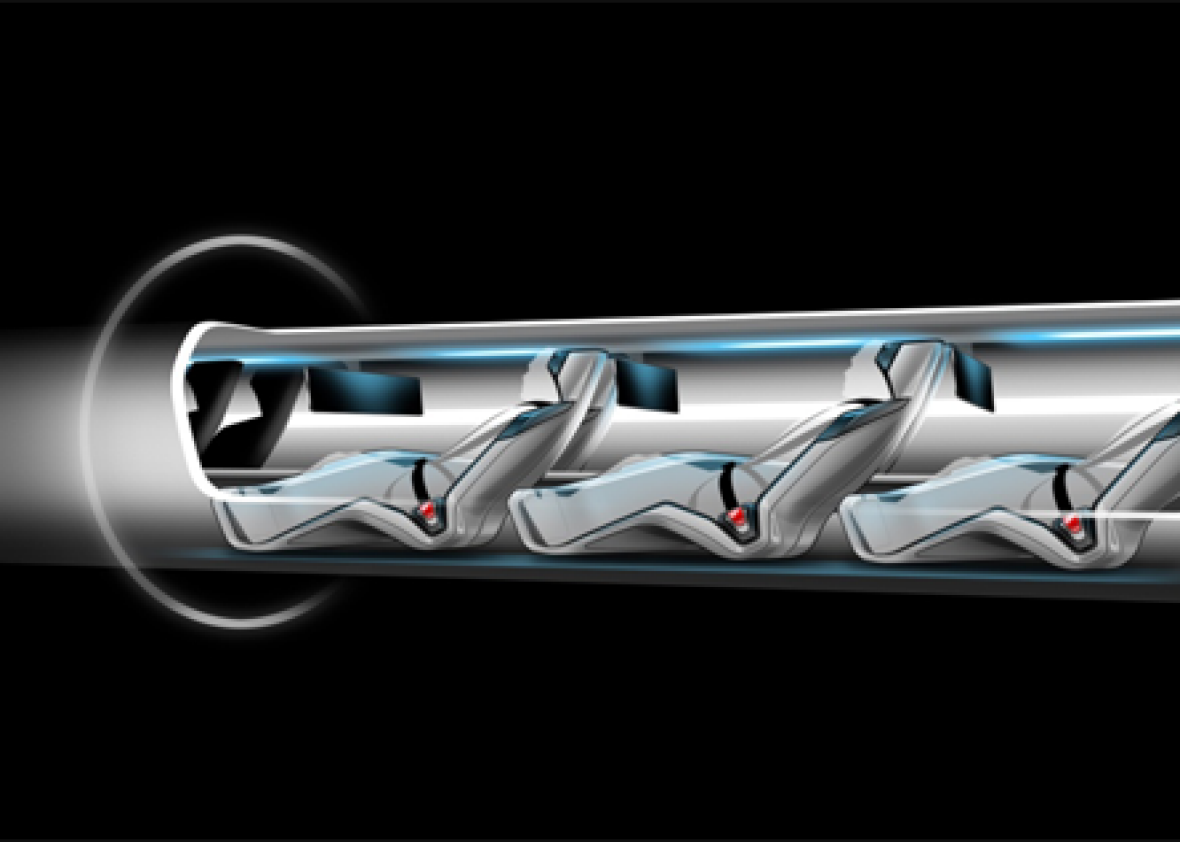This post originally appeared on Inc.
Slovakia just got a leg up in the race to make the Hyperloop a reality. The country signed a formal agreement this week with Hyperloop Transportation Technologies to explore building a Hyperloop system in Europe, the first such agreement signed by a federal government. Los Angeles–based HTT was founded in 2013, the same year SpaceX founder Elon Musk introduced the nearly 800-mile-per-hour transportation tube concept.
Slovakia’s vision for a European Hyperloop system would connect its capital city of Bratislava with Vienna and Budapest, Hungary. A trip from Bratislava to Vienna could take as little as eight minutes at Hyperloop’s full speed, while Bratislava-to-Budapest would take 10 minutes, according to HTT. Making these trips in a car currently takes one hour and two hours, respectively.
In a statement, HTT CEO Dirk Ahlborn said that connecting the three cities with a Hyperloop system would “incentivize collaboration and innovation within Slovakia and throughout Europe,” adding that Slovakia has been a technological leader in the automotive and energy industries. Bratislava and Vienna first built an electric train line connecting the two cities in 1914, just 18 years after engineers in Budapest built the first-ever electric underground railway system.
Despite Slovakia’s early interest in a European Hyperloop system, California is expected to be the first place in the world to break ground on a Hyperloop project. HTT has filed permits to build a five-mile test track in Quay Valley, California, and Ahlborn says he expects construction to begin later this year.
HTT faces competition to create the first Hyperloop prototype from fellow Los Angeles–based startup Hyperloop Technologies. But before either company can build a working Hyperloop system, a number of financial questions remain. “As a science-fiction idea, it clearly works, but as a business, I’m not sure,” John Hansman, a professor of aeronautics and astronautics at MIT, told Inc. in January. “In order to do it, you’ll have to do it safely, and that’s what will be expensive.”
Musk has estimated the Hyperloop could cost upwards of $6 billion to construct, while Ahlborn has publicly stated he expects the project to cost $16 billion. Meanwhile, Michael Anderson, an associate professor of agricultural and resource economics at the University of California–Berkeley, estimates $100 billion is more accurate. Ahlborn has stated he has more than 400 investors willing to buy into the project.
Last month, the Massachusetts Institute of Technology won a competition among more than 1,000 college students who presented design concepts for how the Hyperloop might transport pods of people from city to city at high speeds.
See also: Why GM Is Willing to Pay $1B for Cruise Automation
